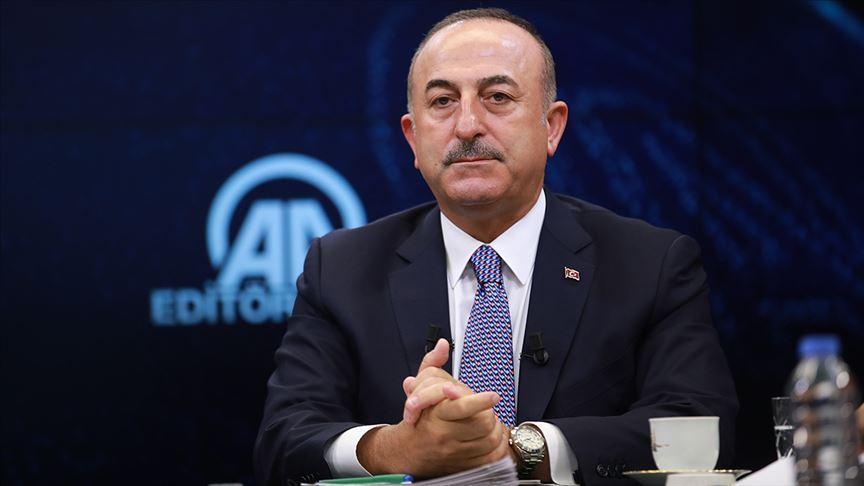Turkey to retaliate if US imposes sanctions over S-400: Çavuşoğlu
ANKARA

Turkey has said it will retaliate if the United States imposes sanctions over its procurement of the S-400 air defense systems from Russia, reiterating once again that this system has already been purchased and will be deployed regardless of its consequences.
“There are steps we will take [against the U.S.] if they impose [sanctions] against us. These steps will be announced when needed,” Foreign Minister Mevlüt Çavuşoğlu told state-run Anadolu Agency in an interview on June 14. “We will certainly respond [to the U.S. sanctions].”
Çavuşoğlu was responding to questions about what actions Turkey would take in the event of the U.S.’s Russia-related sanctions under the Countering America’s Adversaries Through Sanctions Act (CAATSA).
The minister did not specify which measures Turkey would take against the U.S. but stressed that “an understanding that has been stipulating Turkey’s silence and full obedience to the U.S. impositions is now over.”
“Backing down from this deal for us is impossible, whatever its consequences might be,” Çavuşoğlu said, adding, “As the people, we have to have a make decision now. Are we going to be fully dependent or will we be a nation fully independent and free? This requires a certain price to pay and we should be ready to pay it as a whole nation.”
“We will continue our determination in order to become a free and independent nation.”
Turkey, Russia discuss the deployment
Çavuşoğlu also echoed President Recep Tayyip Erdoğan’s earlier statement that the Russian systems have already been bought. “A part of the price has been already paid and the rest will be done through credits. Now we are discussing the deployment with Russians,” the minister stated.
Recalling that the U.S. has not answered Turkey’s calls for the supply of air defense systems for 20 months and is still hesitant to give assurances about a congressional approval in the event that Turkey would want to buy the U.S. Patriot systems, Çavuşoğlu also questioned the reason behind the U.S.’s strong reaction against the Turkish decision on S-400s.
“Why do they create such problems about it?” he asked, repeating Ankara’s proposal of setting up a technical committee to study U.S. concerns of the deployment of the S-400s and F-35 aircraft together on the Turkish soils.
“Turkey’s location is not a place like heaven. Our neighbors are not Mexico and Canada. We face a lot of threats,” Çavuşoğlu said.
He also thanked France for offering the deployment of SAMP/T air defense systems to Turkish territories to augment Turkey’s air defense.
“The current NATO air defense can only secure 30 percent of our territories,” he said.
Eastern Mediterranean
Turning to Greek Cyprus' unilateral drilling in the Eastern Mediterranean, Çavuşoğlu called any agreement excluding Turkey “invalid.”
Turkey has consistently contested the Greek Cypriot administration's unilateral drilling in the Eastern Mediterranean, saying Turkish Cypriots also have rights to the resources in the area and Ankara has a right to hydrocarbon drilling activities as well.
In 1974, following a coup aiming at Cyprus' annexation by Greece, Ankara intervened as a guarantor power. In 1983, the Turkish Republic of Northern Cyprus was founded.
















